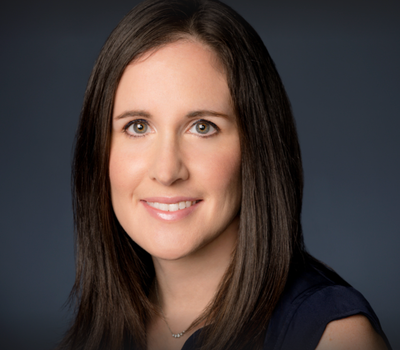How Generation Z is preparing for retirement
Apr 26, 2023
4 mins


Beth Braverman is a freelance journalist based in New York
As the oldest members of Generation Z (those aged 26 or younger) have launched their careers in the past few years, they’ve encountered a workplace that’s largely still in flux following pandemic-driven changes to how and where we do our jobs. One thing hasn’t changed, however: it’s still up to most American employees to save for their own retirement—and the sooner they can get started doing that the better.
So far, the progress that Gen Z is making on that front appears mixed. A recent survey by Bankrate found that nearly one-third (31%) of Gen Z workers aren’t saving anything at all for their retirement, while another 30% are saving more than they did last year.
The survey found that those struggling to save for retirement cited inflation as a top reason. That makes sense, given the outsize impact that inflation can have on younger workers.
“Gen Z is very early in their careers,” says Nicholas Erwin, a financial planning consultant with COUNTRY Financial. “They’re just starting off, so their paychecks might be smaller than they’d be later on in life. But their bills are going up the same as everyone else’s. They’re still spending money on a dozen eggs or a gallon of gasoline, and those higher prices can be a significant portion of their budget.”
In addition, members of Gen Z are often balancing competing financial goals such as paying down student loans.
“The cost of college is just much higher now than it was for previous generations,” says Rita Assaf, vice president of retirement and college products for Fidelity Investments. “And there are also challenges with other financial milestones, such as buying a house, which is much more costly now.”
Many members of Gen Z are also working in the gig economy, making them less likely to have access to workplace savings accounts. These workers can (and should) still get tax-deferred savings through Individual Retirement Accounts (IRAs), but it’s up to them to find, open, and fund those accounts on their own. On the plus side, the process of doing that has gotten much easier.
“Twenty or thirty years ago, you had to go to a financial adviser who would help you get access to investments,” Assaf says. “But that’s not the case these days. Investing has been democratized, so you can easily go onto a website and sign up and open an investment account in a few minutes.”
Still, gig workers not only face more hurdles to opening up a retirement account, but they also lack access to many of the additional benefits that come with a workplace retirement plan, such as an employer match on contributions or access to free financial advice.
Whether you’re working for a traditional employer or building your own career in the gig economy, when you’re just entering the workforce, saving for a retirement that’s decades away can feel like something that’s easy to put off until later. That, financial advisers say, can be a big—and expensive—mistake.
“Gen Z is younger and newer to the workforce,” says Melissa Shaw, a wealth management advisor with TIAA. “A lot of them believe that retirement is something happening 30 or 40 years in the future, so they think they have plenty of time to save. They don’t realize that the earlier that you save for retirement, compound interest kicks in, and you’ll have more time to grow your nest egg.”
A Bankrate analysis found that a worker who put away $5,000 per year for retirement in a tax-deferred account starting at age 22 would have nearly $1.3 million by the time they reached age 62, assuming an 8% rate of return. If they didn’t start until age 32, that balance would fall by about 50% to $566,000 at age 62.
“One of the biggest things that Gen Z has on their side when it comes to saving for retirement is the gift of time,” Shaw says. “It’s important to take advantage of that gift and all of the compound interest that comes along with it by starting saving now.”
Here’s how to get started:
Automate your retirement savings
If you work for an employer who provides a 401(k) plan, this is relatively easy, you simply sign up for the account, ideally at least enough to get any available employer match.
“At big employers, there’s almost always an employer match, so it’s a no-brainer to contribute that much,” says Andrew Briggs, a wealth manager at Plaza Advisory Group at Steward Partners. “That’s free money.”
If your employer doesn’t have a 401(k), or you’re a member of the gig economy, you can open an IRA on your own and set up automatic deposits to mimic the paycheck withdrawals you’d get in a 401(k).
Establish an emergency fund.
The point of having an emergency fund (shoot for three to six months’ worth of expenses) is that you’ll have a cushion to fall back on if you face an unexpected expense like a car repair or health emergency, or to help make ends meet if you lose your job. Having those funds set aside mean that you won’t have to dip into your retirement funds in the case of an emergency. If you’re just starting out, you might split your savings between your retirement and emergency accounts until you’ve met your emergency savings goal. Then you can redirect those extra dollars toward retirement savings.
Increase the amount you save for retirement over time.
While even a small amount of savings can amount to a large nest egg over time, the more you save, the better. One easy way to do this is to boost your contribution rate slightly every time you get a raise. That way, the additional savings won’t impact the rest of your budget. Ultimately, you’ll want to build up to a retirement savings rate of 15% of your income.
Keep those funds invested when you switch jobs.
As a young worker, you’ll likely have many employers over the course of your career, which can also mean many workplace retirement accounts. After you leave your job, you usually roll your old 401(k) into the one at your new job or you can roll it into personal IRA.
You may also have the option of leaving it with your old employer, but after you’ve changed jobs a few times you may want to streamline to make it easier to manage and see all of your retirement accounts in the same place. In general, you want to avoid cashing out your 401(k) when you leave a job (or at any other time) since doing so can trigger taxes and penalties—and also minimize the benefits of that powerful compounding.
Photo: Welcome to the Jungle
Follow Welcome to the Jungle on Facebook on LinkedIn and on Instagram and subscribe to our newsletter to get our latest articles every day!

More inspiration: Salary and benefits

Back to the office, but at what cost? The new era of employee perks and benefits
Employers are prepared to do just about anything to get you to trade your home office setup for an on-site desk ...
Feb 22, 2024

You deserve a bonus, don’t you?
How do you ensure your bonus reflects your value, and your goals?
Dec 20, 2023

Opportunity transparency at work: What can it do for you?
The promotion process has always been an opaque area for workers, so how can companies illuminate their decision-making?
Dec 20, 2023

Who do you need to be to get that raise at your end-of-year review?
Annual reviews are stressful for everyone, and everyone has their own strategy to succeed. So, what's yours?
Dec 12, 2023

Is unlimited vacation a bad idea?
While unlimited vacation may sound like a dream, it can also be a recipe for workplace abuse
Sep 13, 2023
The newsletter that does the job
Want to keep up with the latest articles? Twice a week you can receive stories, jobs, and tips in your inbox.

Looking for your next job?
Over 200,000 people have found a job with Welcome to the Jungle.
Explore jobs